Ghostbusters: The Board Game Exclusive Interview
The Ghostbusters reboot is inching ever-closer to becoming a reality. Ghostbusters is back and New York's finest paranormal investigators and eliminators are ready to bust out their proton packs. And that can only be a good thing.
With the announcement that not only is there an all-female cast reboot in the works (helmed by 'Bridesmaids' director Paul Feig and with Chris Hemsworth recently revealed to be the team's receptionist) but an entire universe of potentially connected movies in the works, busting ghosts will have never felt so good.

But, what if you want to get in on the action? What if you're looking to join the team and get to work stopping those ghouls and ghosts from terrorising the city? Well, after a successful Kickstarter campaign, Cryptozoic (@cryptozoic) is ensuring that Ghostbusters: The Board Game remains faithful to the original film's mythology but at the same time it's expanding and exploring everything the franchise has to offer.
Ghostbusters has a rich heritage. Anyone that grew up during the nineties will remember the excellent cartoon, but there has been thirty years' worth of comics, books and games. And now, with Ghostbusters returning to the silver screen, paranormal troublemakers should get ready to feel the heat of our proton streams.
Rules of Play caught up with Ghostbusters: The Board Game's lead game designer, Mataio Wilson, to find out as much as we could about this exciting new game...
"Trying to capture the original movie into a game would never do it justice. It was done perfectly the first time around."
Rules of Play: Everyone loves Ghostbusters, right? Why do you think Ghostbusters has such a strong legacy?
Mataio Wilson: From my own experiences watching Ghostbusters from the first time, to last week when I watched it with my 3 year old daughter for the third time; I feel it resonates with the fantasy of controlling our fears.
I enjoy the metaphor of literally wrestling with our demons, sealing them in a box and hiding them away forever, only to have them burst out when someone forces us to drop our defences.
Then again, perhaps I’m looking too deeply into a fun sci-fi adventure with wonderfully memorable dialog [laughs].

RoP: That's certainly an interesting way of looking at it. Our 12 year old selves might not have been able to get our heads around that, but what can you tell us about the origin of the gameplay? What are its influences and how did it change from inception to final product?
MW: We wanted to provide a Kickstarter project that created value not only from a depth of figures and play material, but from the small experiences baked into the larger story.
I love RPGs and miniatures, but the amount of rules can bog down a session, so I set out to trim that knowledge requirement down, while keeping the pace intact.
The original versions used a deck of cards to represent the Gates that Ghosts came from, which was replaced with a 6 sided die that opened up a unique tension at the end of the round. Another unrelated deck of cards was removed, but is being refurbished for possible expansions.
RoP: What Ghostbusters source material have you drawn from? There are obviously the two films, but there's also a long-standing cartoon and even a video game.
MW: Born the year of A New Hope, I’m a child of the 80's and 90’s and I delved back into the cartoons and toy lines for lesser known properties. I am also a fan of the IDW comics, who have done an amazing job of continuing the tradition and creating new story arcs that I wanted to pay homage to as well.

The last video game is a great universe that I didn’t want to imitate, but the Rookie has made appearances in the IDW comics, so I felt good snapping him up for the Kickstarter. Ghostbusters 2 is rich enough that we didn’t want to cram it into the base game, allowing more room for it to run free in a future project.
RoP: Have you had any connection with the films (or even those working on the new films in the series)?
MW: Sony has been incredibly generous by opening up the original movies, cartoons, toy lines, and comics vault for characters, game play mechanics, and settings, but the new movie is too new to explore. They only just now cast Chris Hemsworth as the Ghostbusters receptionist!
RoP: How do you translate Ghostbusters's story and characters into a board game?
MW: Trying to capture the original movie into a game would never do it justice. It was done perfectly the first time around. My aim is to create a setting that feels supported by previous events, without attempting to retell a story we’re all familiar with.
The characters lend a personality that fits well into a classic RPG party; someone who gets in front of the action, someone who exploits the enemy’s weaknesses, an expert in our mind and body, and the jack of all trades who is up for any job as long as the pay is right.

RoP: Is Kickstarter the best way to get a board game made? How have you found the process?
MW: Kickstarter is a great platform to flex a developer’s creativity and expand on an already well rounded game. Stretch goals allow for material that may not have made it into the base game due to increasing rules complexity, final product box weight, or analysis paralysis over choosing a starting character, to name a few.
I’ve really enjoyed the opportunity Kickstarter has provided to reach out to the fans and communicate with them directly on what excites them, and it’s fulfilling to learn that I’m in line with most of their needs.
RoP: What games do you enjoy to play and what is it about their design that keeps pulling you back?
MW: I play games to spend time with loved ones. I enjoy the moments of solidarity and shared memories that build stronger friendships. I’ve been a dungeon master since my brother first taught me the basics of D&D, and I love entertaining folks with anything Nintendo, and so long as I can teach someone a game in a few minutes, it has my recommendation.
"Board games allow us to interact with each other in person again, after living in a digital culture for so long."
RoP: How do you ensure that a game is designed in such a way that it's easy to pick up and play but also contains the depth and strategy needed to keep players coming back?
MW: Creating with intuitive game play mechanics is a general goal, but expanding too much can move to goal post. I tend to over design, then watch player’s faces as they contemplate not just the right move, but any move, then trim from there.
I try to avoid creating in a bubble and falling into the trap of being too close to see the complexity creeping past the simplicity.
I’m also the devious type of dungeon master that loves setting traps, challenging the players to rethink the strategy that garnered their success. You shouldn’t win every game; some growth comes from overcoming confrontations.
Mainly, navigating player feedback is essential to game design, and having the right play testers can mean the difference between passable and spine tingling.

RoP: Why do you think board games are currently experiencing a surge in popularity?
MW: Watching a character on a screen is the easiest way to absorb an emotional experience, but it can also remind the viewer of the disconnection from real world events.
Board games allow us to interact with each other in person again, after living in a digital culture for so long. Granted, I really enjoy video games, and lost myself in countless Minecraft caves, but when I squint across the table at a friend who may be a spy bent on sabotaging the mission, I gain a deeper involvement with my fellow humans.
RoP: Co-op games also seem to experiencing a surge in popularity (and is the perfect fit for Ghostbusters), but how do you ensure they are balanced?
MW: Some of the low hanging techniques are through gaining XP and levels at the same pace, but personally, I want to feel that I am contributing to the success of the group in my own way. If everyone can zap a ghost, what makes me special? If there is a chain of event that needs to take place, am I doing something to ensure its success, other than zapping another ghost?
When I look at the goals of the game, I try to break them into pieces and see if those pieces can be divvied up, and then explore the ways to accomplish those mini-goals. Once I settle on the core mechanics, I search out the gut reactions of doing something amazing, then seeing if I can elevate that shared event with every character instead of nerfing it to line up with the lowest one.
Keep an eye on Rules of Play for more exclusive interviews coming soon! Or get involved in the conversation: @rulescardiff and Rules of Play on Facebook.

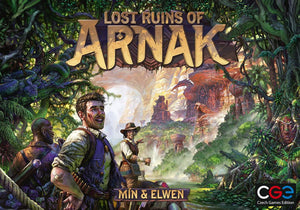
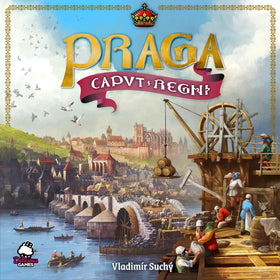
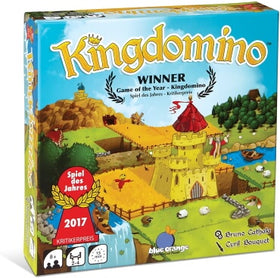
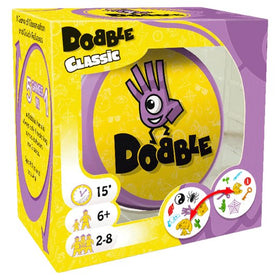
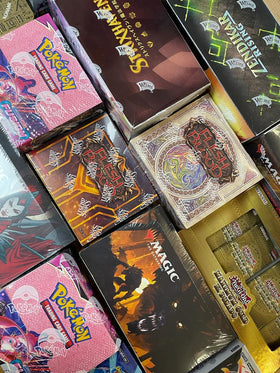
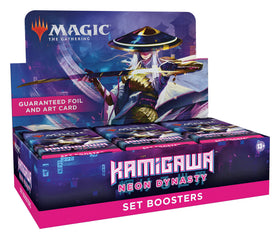
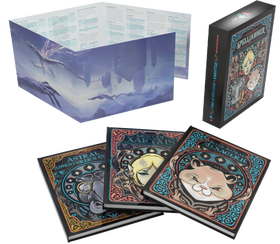
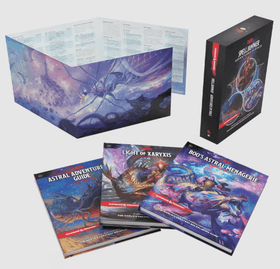
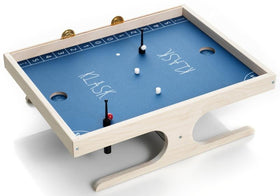
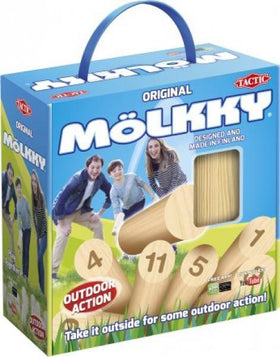
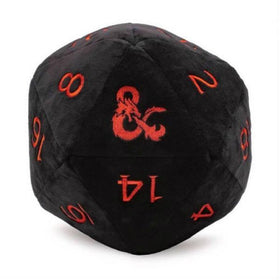
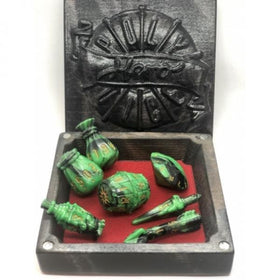
Leave a comment